#black entrepreneurs
Text
Fa sho!

#blackmen#melaninpoppin#blackcouples#blackwomen#blacklove#blackfamily#blackfathers#melaninrich#marriedandblack#blackexcellence#black culture#black couples#melanincouples#melaninwomen#blackgirlmagic#black business#black entrepreneurs#black fathers
245 notes
·
View notes
Text
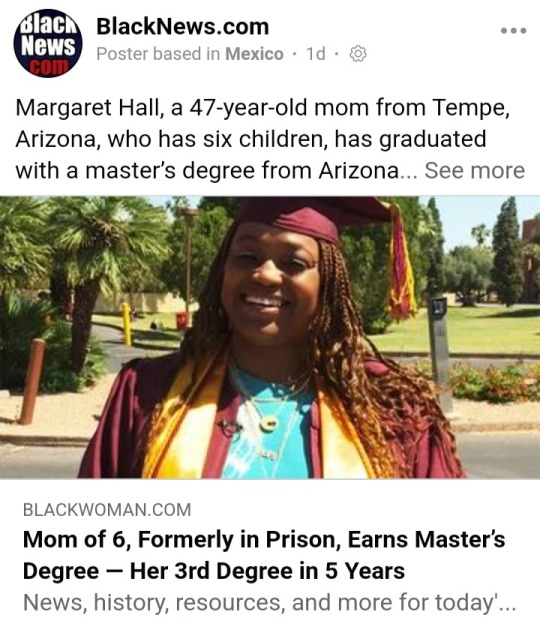


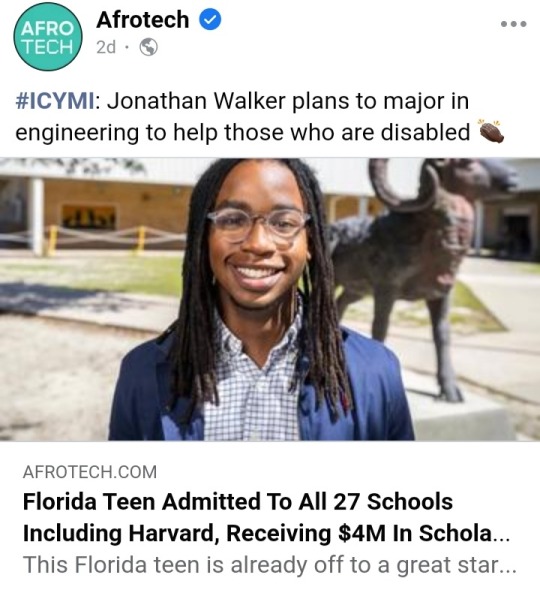



#good news#black excellence#blacklivesmatter#black lives matter#black education#black entrepreneurs#black entrepreneurship#black experience#black owned businesses#black women#black economics#black owned business#us politics#black educators
842 notes
·
View notes
Text
It’s easy to forget that people of African descent come from a rich legacy of community and wealth-building as the first kings and queens on the planet. In a world that stifles Black progress and seeks to recreate a Eurocentric world-view of history, the brilliance of Black business owners shines through like a diamond in the rough.
As communities of the African diaspora, from Historic Greenwood District to Cape Town, South Africa, seek to build generational wealth after decades and centuries of pillaging and persecution, a few exceptional entrepreneurs stand out. The 10 wealthiest people of African descent prove the potential that’s often locked away inside Black people everywhere.
Using data from Forbes, which tracks the net worth of the wealthiest human beings in the world, The Black Wall Street Times compiled a list of the top 10 wealthiest Black people. Out of the 10, four are American, and three are Nigerian. Additionally, two are women, and eight are men.
What lessons can we learn from their success? Let’s meet them.
10. Folorunsho Alakija — Nigerian businesswoman and philanthropist.
Alakija has an estimated net worth of $1 billion as of 2020. Alakija is the founder and executive vice chairman of Famfa Oil, one of Nigeria’s largest oil exploration companies. Entering the business world with a fashion label, Alakija rose to financial prestige by cultivating high-profile clients, including the wife of former Nigerian president Ibrahim Babangida. At 72 years old, Forbes ranks her as the 20th wealthiest person in Africa and the wealthiest woman on the continent.
I have faced many hurdles in my own life, but I have learned that with the right mindset, every challenge is a chance to create bigger and better opportunities. pic.twitter.com/KJDholX9tx— Folorunso Alakija (@alakijaofficial) March 20, 2023
9. Mohammed Ibrahim — British-Sudanese businessman and philanthropist.
Ibrahim has an estimated net worth of $1.2 billion as of 2023. Born in Sudan, he’s the founder and chairman of Celtel International, one of Africa’s largest mobile phone companies. He also established the Mo Ibrahim Foundation to support good governance in Africa. He sold Celtel International to Kuwait’s Mobile Telecommunications Company for a whopping $3.4 billion in 2005, pocketing $1.4 billion in the process.
— startupAFRICA (@startupafrimag) April 28, 2019
8. Michael Jordan — Former NBA player and American businessman.
The six-time NBA champion has stayed busy in his retirement years. He’s now a successful businessman with an estimated net worth of $2 billion as of 2023. Jordan is the majority owner of the Charlotte Hornets franchise and has several other investments in business ventures across the world.
7. Strive Masiyiwa — Zimbabwean businessman and philanthropist.
Masiyiwa has an estimated net worth of $2.1 billion as of 2023. In 1998, he overcame government opposition to launch the mobile phone network Econet Wireless Zimbabwe. He also owns stakes in fiber optic and fintech companies in several African countries. Together with his wife Tsitsi, he found HigherLife Foundation. The organization supports orphaned and low-income children in Zimbabwe, South Africa, Burundi and Lesotho.
I met Strive Masiyiwa’s Higher Life Foundation & Celebration Ministries International fact finding team that will help Joyce Banda Foundation International provide immediate & long term help to cyclone Freddy victims. Our people need urgent help. Looking forward to their support. pic.twitter.com/SvRuG7CSB0— H.E. Dr. Joyce Banda (@DrJoyceBanda) March 20, 2023
6. Oprah Winfrey — American media mogul and philanthropist.
Arguably one of the most famous Black American women, Winfrey has a net worth of $2.5 billion as of 2023. She is the founder and chairwoman of Harpo Productions, which produces television shows, films, and digital media for a variety of platforms. Beginning her career as a TV journalist, Winfrey transitioned her hit talk show into a media empire with the OWN network, reinvesting profits from movies into more ventures.
Top five
5. Patrice Motsepe — South African businessman.
In 2008, Motsepe became the first Black African billionaire and has an estimated net worth of $2.7 billion as of 2023. Motsepe is the chairman and founder of African Rainbow Minerals, a South African-based mining company. In 1997, he flippled low-producing mining shafts into a profitable enterprise. He is the owner of the Mamelodi Sundowns Football Club and was elected president of the Confederation of African Football in 2021.
This is Patrice Motsepe. He bought an unknown South African club to frustrate Orlando Pirates and Kaiser Chiefs. All the cups prize money is shared among the players. Today Mamelodi Sundows is the best football club in Africa pic.twitter.com/k2vhDRXtBo— Tolo (@021Nongwadla) March 28, 2023
4. David Steward — American businessman and philanthropist.
Steward has a net worth of $6 billion as of 2023, making him the fourth wealthiest Black person in the world. Steward is the founder and CEO of World Wide Technology, Inc., a privately held technology solutions provider. A man who once watched his car get repossessed has progressed past poverty to become owner of a company that boasts high-profile clients, such as: Citi, Verizon and the U.S. government. In 2018, Steward donated $1.3 million to the University of Missouri-St. Louis to establish the David and Thelma Steward Institute for Jazz Studies.
David Steward battled with obstacles like poverty and racism. David didn’t enjoy the best resources from his parents. However, he learnt lessons from his parents that gave him significant wealth. One such is “treating people right.”https://t.co/b1ntWaFeEX— Business Elites Africa (@ElitesAfrica) March 27, 2023
3. Mike Adenuga — Nigerian businessman and billionaire.
Adenuga has an estimated net worth of $6.1 billion as of 2023. He’s the founder and chairman of Globacom, one of Nigeria’s largest mobile phone networks. It’s the third largest operator in Nigeria, with 55 million subscribers. Adenuga also runs a profitable oil exploration company in the Niger delta. He supported himself as a college student earning an MBA in New York by moonlighting as a taxi driver. At age 26, he earned his first million dollars selling lace and soft drinks.
Mike Adenuga worked as a taxi driver to help fund his university education. A student in New York, USA, he drove a taxi to pay for his studies, even though his parents belonged to the upper middle class in Nigeria. He was born and raised in Ibadan, Oyo. pic.twitter.com/qs7CCk0CVh— Yorùbáness (@Yorubaness) March 17, 2023
2. Robert F. Smith — American businessman.
Smith a net worth of $8 billion as of 2023, making him the second wealthiest Black person in the world. He is the founder and CEO of Vista Equity Partners, a private equity firm that specializes in software, data, and technology companies. Vista is one of the most successful private equity firms, with $96 billion in assets. The persistent self-starter earned an internship at Bell Labs during college after calling the company every week for five months. As an engineer, he worked at Goodyear Tire and Kraft Foods before earning an MBA from Columbia University. In 2019, he vowed to pay the student debt for the entire graduating class of Morehouse College.
1. Aliko Dangote — Nigerian businessman.
Topping the list of the wealthiest Black person in the world with an estimated net worth of $13.7 billion as of 2023, is none other than Nigeria’s own Aliko Dangote. He’s founder and chairman of Dangote Cement, one of Africa’s leading cement producers and he’s Africa’s richest man. The company has operations in 10 countries across the Motherland, and he also boasts a newly created fertilizer company as of 2022. Once completed, Dangote Oil Refinery is expected to be one of the world’s largest, even as climate change continues to disrupt the planet.
Today we celebrate a polio-free Africa, the result of decades of vaccination, hard work, collaboration. Tomorrow we get back to work, to ensure wild polio does not come back. Together, we all can #EndPolio globally.— Aliko Dangote (@AlikoDangote) August 25, 2020
While Nigeria boasts the third and first richest Black people in the world, the list reflects a diverse array of personalities, backgrounds, and ingenuity across the African diaspora.
#Meet the Top 10 wealthiest Black people in the world in 2023#Black Entrepreneurs#Black Business#Black Money Makers#Black Economy
10 notes
·
View notes
Text
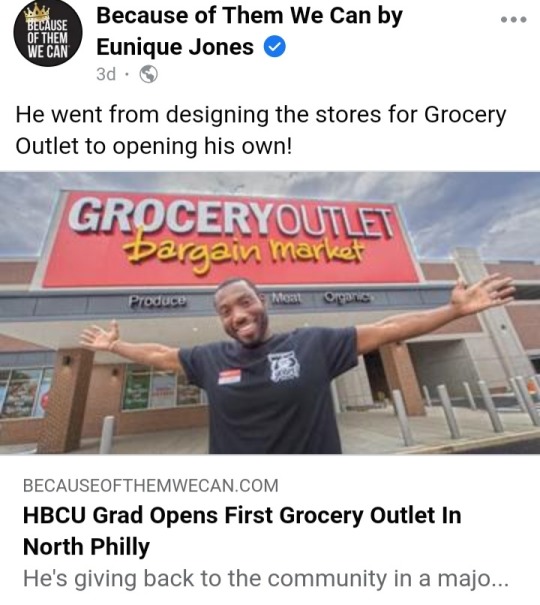


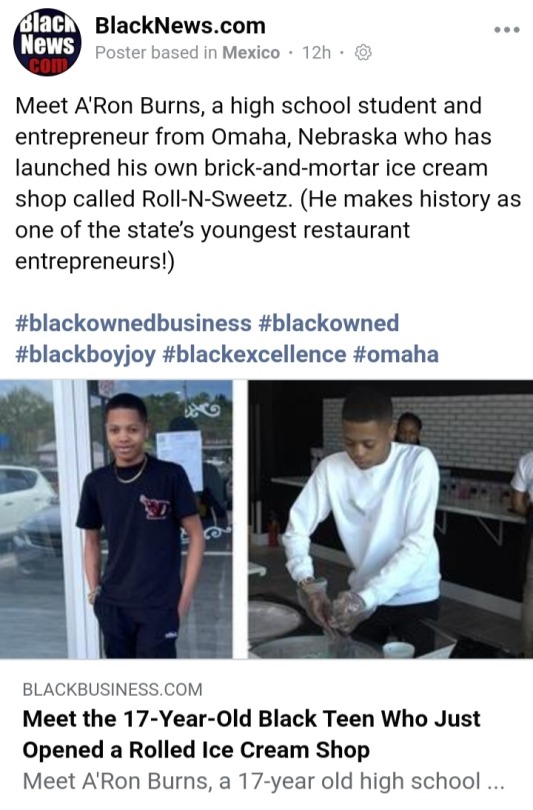
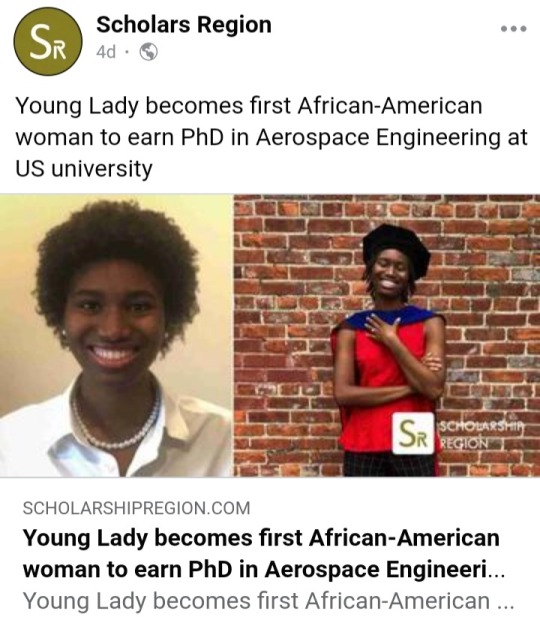
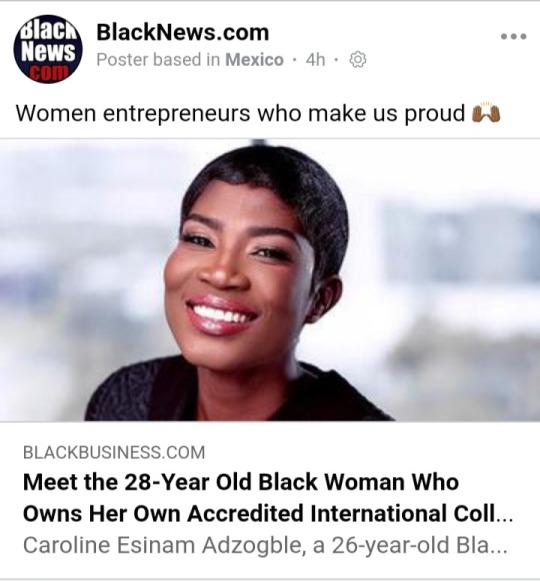
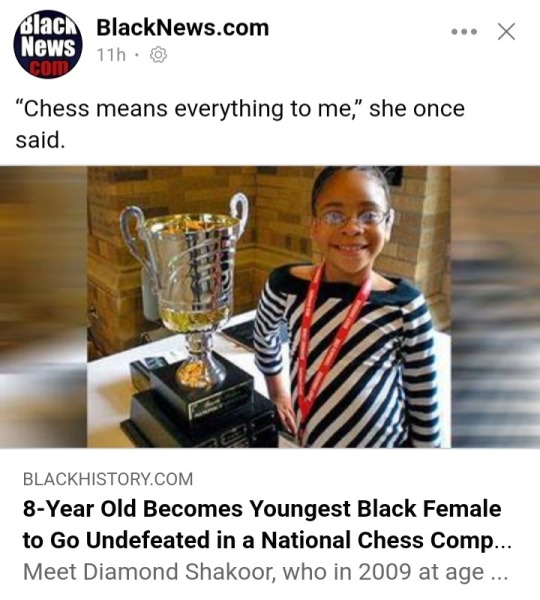
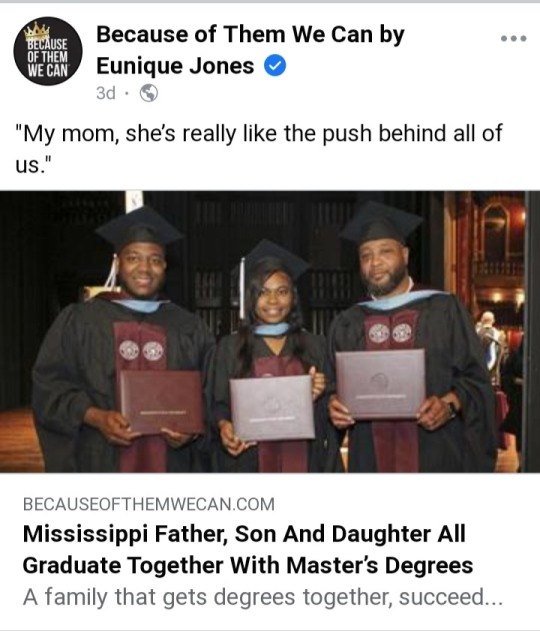
#black economics#black excellence#black entrepreneurs#black business#black owned#support black owned#black owned business#business owner#black owned businesses#entrepreneur#black educators#blacked#black lives matter#blacklivesmatter
102 notes
·
View notes
Text
What Would an Economy That Loved Black People Look Like? - Non Profit News | Nonprofit Quarterly
What would it look like if the economy loved Black people? I hold this question in my heart every day as I reflect on our current economic conditions and strategize about building a reimagined economy rooted in equity, justice, and liberation.
To be serious about closing the racial wealth gap and building an economy that loves Black people, we need to focus our attention on the US South.
One thing I am certain of is that the systemic barriers and inequities that are embedded in present financial structures have no place in a reimagined economy. I would further contend that to transform our economy into one that loves Black people, movements need to get more intimate with the topic of power. Alicia Garza defines power as “the ability to change your circumstances and the circumstances of other people.” She talks about how being precise about power helps us be precise about strategy. Without a clear destination, the steps that are taken are going to be disordered.
As a financial activist and reparative capital investor, power and power building in this context means shifting financial policies, practices, and infrastructure into ones that seed and sustain change. It means joining with values-aligned wealth holders and investors to disrupt power by dismantling the systems that have obstructed Black communities from building generational wealth. And it means that to be serious about closing the racial wealth gap and building an economy that loves Black people, we need to focus our attention on the US South, where roughly 56 percent of Black people in the United States call home. We must invest in the Southern Black creatives, innovators, and leaders who are the biggest exporters of culture around the world and on the frontlines of change and community power building.
Closing the Racial Wealth Gap in the South
US researcher and agricultural law expert Nathan Rosenberg has said, “If you want to understand wealth and inequality in this country, you have to understand Black land loss.” Jubilee Justice, an organization founded by Konda Mason, who serves as the strategic director of my firm RUNWAY, recognizes that land ownership provides a pathway to create generational wealth, access financial resources, have agency over agricultural and sustainable land management practices, and foster community resilience.
In the rural South, Black farmers have historically experienced—and continue to experience—a lack of access to agricultural resources and credit. They also continue to face discrimination, and exclusion from government programs, loans, and subsidies. This result is the loss of farmland and restricted opportunities for economic growth.
Of all private US agricultural land (excluding Indian Country), according to a US Department of Agriculture study, White people comprise 96 percent of farmers, own 98 percent of the acres, and generate 97 percent of farm earnings. From 1900 to 1997, the number of Black farmers decreased by more than 97 percent; in the South, Black landowners lost 12 million acres of farmland over the past century, amounting to $326 billion worth of lost land in the United States due to discrimination.
The unjust policies that denied, dispossessed, and restricted Black individuals and communities of land ownership in the past have cast a long shadow. Policies that have routinely prevented Black communities from building generational wealth, like redlining and denying Black people mortgage loans and insurance, persist and are reflected in the massive racial wealth gap we’re still seeing today.
Even as the struggles for civil rights, inclusion, and economic justice gain ground, investment in the South remains uneven. Grantmakers for Southern Progress shares that the South receives less than three percent of all philanthropic investment in the United States. We must increase philanthropic action to build the capacity of community-based organizations and networks leading structural change work in the region.
As Tamieka Mosley of Grantmakers for Southern Progress and Nathanial Smith of the Partnership for Southern Equity, share: “If the South—the birthplace of historic and destructive inequities—rallies to end structural injustice, it can model for the country what the journey toward racial justice and equity looks like.”
Black communities continue to experience the ongoing legacy of slavery and racism through blatant discrimination from financial institutions whose inequitable lending practices limit Black entrepreneurs from attracting early critical investments. On average, early-stage entrepreneurs need about $30,000 in capital to get their initiatives off the ground, with friends and family of entrepreneurs on average providing $23,000 or more than three quarters, of the needed amount. All told, nationally friends and family investing exceeds $60 billion a year, nearly three times the investment level of venture capitalists.
However, not everyone has equal access to this vital source of capital. In 2019, the median White family in the United States had $184,000 in wealth compared to just $38,000 and $23,000 for the median Latinx and Black families, respectively. With this racial wealth disparity, Black entrepreneurs are less likely to receive early-stage funding from friends and family—a critical lifeline for business startups and growth opportunities.
It is especially critical because capital from friends and family typically has more flexible lending terms and is not tied to a person’s credit score; rather, it is based on the level of trust people have in the preparation of the business owner. These relationships and informal networks also provide other nonfinancial resources such as business advising, referrals, and support systems. For many Black entrepreneurs, particularly women, racial wealth inequality is the leading factor in why their great ideas never leave the napkin.
RUNWAY believes giving every Black entrepreneur access to the “friends and family” round of investing will be transformational for Black communities. The key to this process, as mentioned, is trust.
By infusing trust into exploitative and extractive systems, we can facilitate pivotal early-stage investments along with wraparound entrepreneurial ecosystem support like business coaching and advising. We can provide “friends and family” funding using patient, flexible capital to advance resiliency for Black businesses and the communities they serve.
Investing in people and places that have been historically excluded from traditional investment support will always appear risky to foundations and fund managers. The best antidote to that risk is to build trust-based, honest relationships with local community leaders and changemakers who deeply understand the region and the specific needs of that region. In the South, those relationships will be based on listening, mutual aid, and physical presence. These types of relationships are critical to making investments that shift the balance of power toward equity and wealth regeneration for Black communities.
Listening to the Community
I recently gathered in my home state of Alabama with a delegation of fund managers, investors, and philanthropists to bring reparative finance to the people and places that have been systemically blocked from wealth building opportunities as part of RUNWAY ROOTED, my organization’s latest initiative to invest in Southern Black entrepreneurship, creativity, and innovation.
It takes long-term, non-extractive, reparative investments . . . to undo the systemic design of racial hierarchy and imagine new possibilities.
We spent a week moving through the region to learn from community leaders, creatives, and local representatives about the unique economic challenges in the area. The experience illuminated the fact that Black business ownership is a mechanism that not only builds economic power, but social and political power as well.
Truth be told, in most cases, resistance from investors and wealth holders goes back to power. Those in power don’t want to let go of it. But the conversations like the ones we had in Alabama signal that things are changing. We must be deliberate in how we apply pressure. This involves deep collaboration between movement leaders, creatives, and community, as well as with investors, funders, and wealth holders. We must collaborate on ways to work together and co-conspire to build collective power.
Building collective power takes telling the truth about why Black people in places like Jackson, MS remain deeply entrenched in age-old, stubborn barriers to economic opportunity. It takes investors who are willing to reckon with a history that built wealth by stealing land from Indigenous nations and extracting free labor from enslaved Africans—and to invest in repairing the conditions that presently uphold the racial wealth gap. And it takes long-term, non-extractive, reparative investments that remind us that the real work is to undo the systemic design of racial hierarchy and imagine new possibilities.
Investing in Southern Creatives
Shaping our collective future into one that loves Black people needs the joy, inspiration, and useful critique of our political, economic, and social systems that come from creative thinkers and makers through their art, organizing, and visionary disruption. To tap into this dynamic force of change, it is vital to ensure that the extractive finance of the past does not block our collective ability to invest in the talent and innovation of the future.
This work requires long-term, flexible commitments of capital, time, and . . . support for Black-led businesses and innovation in the South.
Reimagining and collaboratively shaping a world where Black people are loved means prioritizing investments in creative entrepreneurs and creative placemaking. It means investing in places like Gee’s Bend, AL, to bring long-term business capital to the women who carry the legacy and tradition of West African quilting—one of the most important cultural contributions to the history of art in the United States. It means partnering with organizations like Upstart Co-Lab and Souls Grown Deep Foundation, who journeyed with us in Alabama, to invest in the arts, cultural, design, and innovation industries in the South with a mission toward repair and justice.
Philanthropy and investments that are transformative and inclusive are not only about diversifying the seats at the decision-making table. They also invite multiple voices into the design rooms where the table is carved out and set, ensuring it is broad and deep enough to nourish the future of local and national communities.
This work requires long-term, flexible commitments of capital, time, and capacity with a willingness to resolve disparities in funding and support for Black-led businesses and innovation in the South. It’s also necessary to acknowledge that the economic development programs that work for coastal metros or major cities may not be the same for the South—and need to be thoughtfully adapted to meet the distinct community needs, local infrastructure, and pulse of the region. By listening deeply and building authentic relationships with community leaders, community transformation over time can occur on community terms. Through this process, people are transformed—and so are community social and economic conditions.
I’ve always felt like investing in artists, creatives, and innovators does what Nina Simone famously said: “An artist’s duty, as far as I’m concerned, is to reflect the times.” Simone believed that artists and creatives have a responsibility to create work that reflects and addresses the social, political, and cultural climate of their era; that art has the power to serve as a mirror of society, bringing attention to important issues and fostering dialogue and understanding.
Today, the creative economy represents $985 billion in economic opportunity. This is also a time when art from creators like Amanda Gorman, who became the youngest inaugural poet in US history when she performed “The Hill We Climb” during President Joe Biden’s inauguration in 2021, is being banned in Florida schools. Responses like this tell us that art does indeed have power. Creativity has power. Innovation and truth-telling have power. And power is transformative.
…..
Building an economy that truly loves Black people requires a profound shift in financial structures and the way money moves. Investing in the South and supporting Southern Black creatives, innovators, and leaders is a pivotal step in redressing land loss and the discriminatory lending practices Black entrepreneurs continue to face.
We live in a moment of incredible opportunity. The mission (and the challenge) here is to take this moment and turn it into a movement that sustains the transformative work required to build an economy where we all have the power—and the right—to thrive.
#What Would an Economy That Loved Black People Look Like#Black Economics#Black Peoples Money#Black Money Matters#Black Finance#Black Lives Matter#Black Lifestyles Matter#Finance#financial structures#Black Entrepreneurs
2 notes
·
View notes
Text





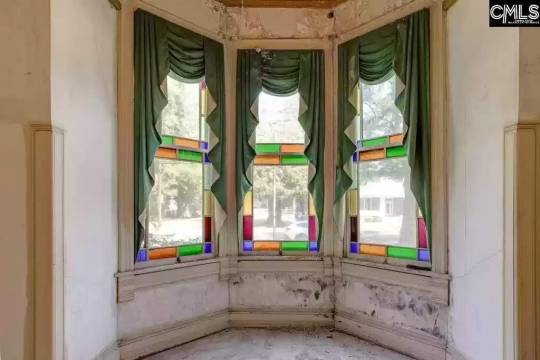




Oh, my! I've found my dream home! 😍
Darlington, SC circa 1890 **Not my pics.**
From the real estate listing:
"The "E.T. West House" is located within the Historic District of Darlington, SC and is listed in the National Register of Historic Places. The Historic District is rich in character and old-world charm and is known as "Reese Row" after the self-taught African American master carpenter, architect & entrepreneur, Lawrence Reese. Mr. Reese's houses are known for their intricate woodwork and elaborate gothic-style architectural elements. This Queen Ann Victorian home offers 4,246 sqft, 5 bedrooms, 2.5 baths, 12-14' ceilings, 8 ornate fireplaces, French doors, two balconies, stained glass windows & transom windows throughout much of the home. You will also find hard wood floors in the majority of the home, although carpet covers some of them. As was customary of the time, there are not one, but TWO outdoor kitchens that could transform into offices or used for storage. There is a butler's pantry nestled nicely between the kitchen and formal dining room. The primary suite is on the main floor & is connected to a full bath with a claw foot tub. Upstairs are four more large bedrooms, two of which have their own private balconies that are accessed by ornate wooden French doors."
#victorian architecture#queen anne victorian#historic architecture#black history#carpenter#african american history#old house#life#old ghosts#south carolina#southern architecture#stained glass windows#stained glass#1890s#black entrepreneurs#black inventors#part one
17 notes
·
View notes
Text
2023: Black Entrepreneurs Face a Heavy Drop in VC Funds
Black entrepreneurs – Being an entrepreneur has never been easy, but for people of color it could be particularly challenging.
Black entrepreneurs have had trouble obtaining funding throughout the years.
Instead, a lot of people rely on venture capital investment, which is only available to diverse entrepreneurs.
While seeking VC funding over the years, Black entrepreneurs and Black-led enterprises have encountered prejudice, despite the fact that many of them were successful.
Annually, Black entrepreneurs generally receive less than 2% of total VC financing.
However, the percentage of Black women-owned enterprises is barely 1%.
Source: https://marketdaily.com/black-entrepreneurs-hit-heavy-vc-funds-drop-2023/

#Beatrice Dixon#Black entrepreneurs#Business#Central banks#Featured-top#Funding#George Floyd#Investment#Marion Nichols#VC funding#Venture capital funding
4 notes
·
View notes
Photo

$15,000 is up for grabs with the 3rd Annual OBWS Black Entrepreneur of Year Awards, presented by CloverCommerce! We're celebrating and rewarding one impactful Black entrepreneur with...
A $15,000 grant for their business
The OBWS Entrepreneur of the Year Award
Free access to OBWS paid membership
Free legal services and monthly resources
Apply: https://lnkd.in/edErSRej
Deadline is Friday, August 5th at 11:59PM EST!
#black entrepreneur#obwsapp#obws app#black owned#black owned business#black entrepreneurs#black entrepreneurship#buy black#support black business#grant
4 notes
·
View notes
Text
Black Histories and Futures Month

View On WordPress
#activism#advocacy#awareness#biodiversity#Black communities#Black entrepreneurs#Black Histories and Futures Month#Black Lives Matter#CARBON FOOTPRINT#celebration#Clean Energy#Climate Action#Climate Adaptation#climate change#climate crisis#Climate Mitigation#collaboration#community#community building#Community Engagement#conservation#contributions#culture#diversity#eco-conscious#economic justice#Ecosystem#education#empowerment#environment
0 notes
Text
Black-Owned Fragrance Brand Launches Collection with JC Penney
CHEMIN, a black-owned fragrance brand by perfumer, November Nichols, has teamed up with JC Penney to launch an affordable luxury collection.
CHEMIN, a black-owned fragrance brand by Atlanta-Based perfumer, November Nichols, has teamed up with department store giant, JC Penney to launch an affordable luxury collection in stores both nationwide and online.
Black-owned fragrance brand comes to JC Penney
The collaboration, which launched today, offers an exquisite array of gender-neutral parfums and body products that celebrate your…

View On WordPress
1 note
·
View note
Text
Bobby Bands: Owner of Certified CEO Clothing
📷: @kevdaceo of DMEtv
#clothing company#music#dmetv#repostsave#entrepreneurs#black entrepreneurs#insperation#videographer#kevdaceo
1 note
·
View note
Text
Celebrating Black Excellence: The 5th Annual Cocoa Awards
In a dazzling display of talent, community spirit, and outstanding achievement, the fifth annual Cocoa Awards, an acronym for "Celebrating Our Culture & Outstanding Achievements," lived up to its reputation as a beacon of Black excellence. Since its inception in 2019, this event has continued to grow, shining a spotlight on exceptional Black entrepreneurs who are making a significant impact in their communities.
This year's star-studded award ceremony, hosted by the charismatic Neeko, was an unforgettable affair. Neeko not only presented each award but also kept the audience entertained with her infectious energy and wit.
Honoring Excellence: A Recap of the Awards
Outstanding Performing Arts Award: Storm Debarge
Storm Debarge, a true luminary in the world of performing arts, took home the Outstanding Performing Arts Award. Her remarkable talent and dedication to her craft have earned her this well-deserved recognition.
Outstanding Community Service Award: Enjonette
Enjonette was celebrated for her exceptional contributions to the community. Her tireless efforts in making a positive impact on the lives of many earned her The Outstanding Community Service Award.
Outstanding Influence Award: Josh
Josh's influence extends far and wide, and it was only fitting that he received The Outstanding Influence Award. His ability to inspire and effect change in others is truly remarkable.
Outstanding Consistency Award: Shintara
Shintara's dedication and unwavering commitment were acknowledged with The Outstanding Consistency Award. Her ability to maintain excellence over time is an inspiration to all.
Outstanding Growth Award: Walter Tindal
Walter Tindal's journey of growth and self-improvement was recognized with an award for Outstanding Growth. His story is a testament to the power of determination and resilience.
Outstanding Creators of Space Award: Creators Campus
Creators Campus, a hub of innovation and creativity, was honored with The Outstanding Creators of Space Award. Their role in fostering a space for artists and creators is truly commendable.
Outstanding Apparel Award: Jean Deauxx
The Outstanding Apparel Award was presented to Jean Deauxx for their outstanding contributions to the world of fashion. Their innovative designs and fashion-forward creations have left an indelible mark.
A Night of Celebration and Inspiration
The Cocoa Awards not only celebrated the accomplishments of these remarkable individuals and organizations but also served as an inspiration for all. It showcased the immense talent and dedication within the Black community and demonstrated the importance of recognizing and celebrating excellence.
As the fifth annual Cocoa Awards drew to a close, it left everyone in attendance with a sense of pride and optimism. The legacy of this event continues to grow, and it will undoubtedly inspire future generations to reach new heights of achievement.
The Cocoa Awards have once again proven that excellence knows no boundaries and that by celebrating our culture and outstanding achievements, we can uplift and empower our communities. Here's to many more years of honoring Black excellence!
Have you been spending all your money and time on making music and shooting videos, but still not getting any exposure? Tired of just spinning your wheels? You know to get exposure you need to get featured on blogs, radio stations, playlist, and get your music e-mail blasted out to the masses. Need help getting all that done? Then check out the Package we’ve made available for you below!
Like & Listen To Our Spotify Playlist
trapLAXradio On The Air Now!
The Latest Music, Videos, News, Entertainment……
#trapLA#Cocoa Awards#Black Excellence#Celebrating Our Culture#Outstanding Achievements#Black Entrepreneurs#Neeko#Outstanding Performing Arts Award#Outstanding Community Service Award#Outstanding Influence Award#Outstanding Consistency Award#Outstanding Growth Award#Outstanding Creators of Space Award#Outstanding Apparel Award#Jean Deauxx#Authenticity#Limited Luxury#Fashion Brand#HouseofDeauxx#Luxury Fashion#Authentic Individuals#Fashion Evolution#Unique Fashion#Exclusive Collections
1 note
·
View note
Text
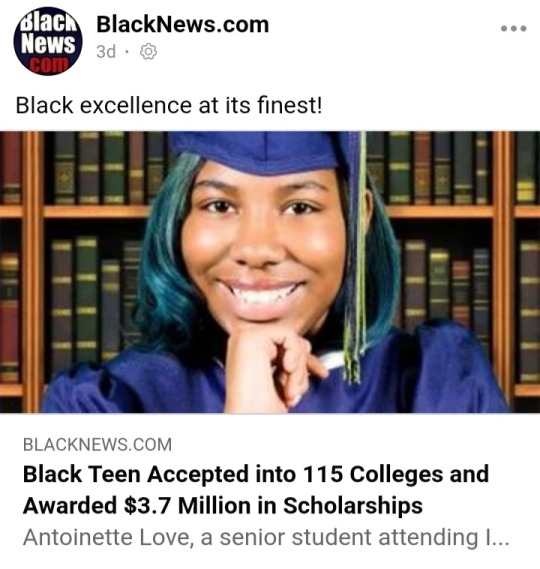


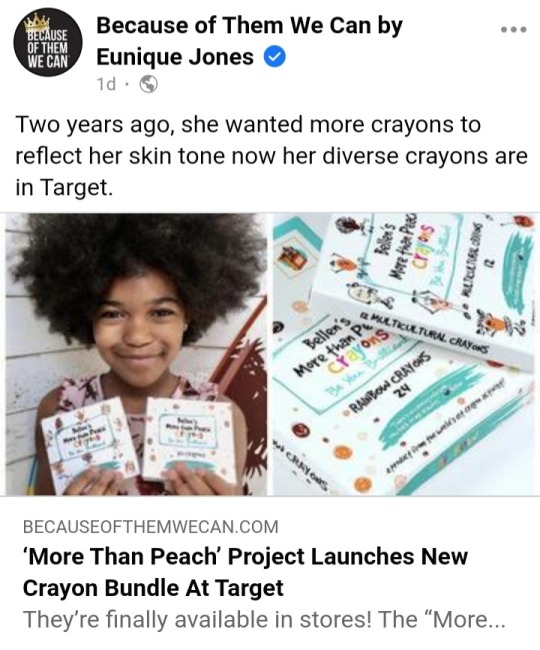
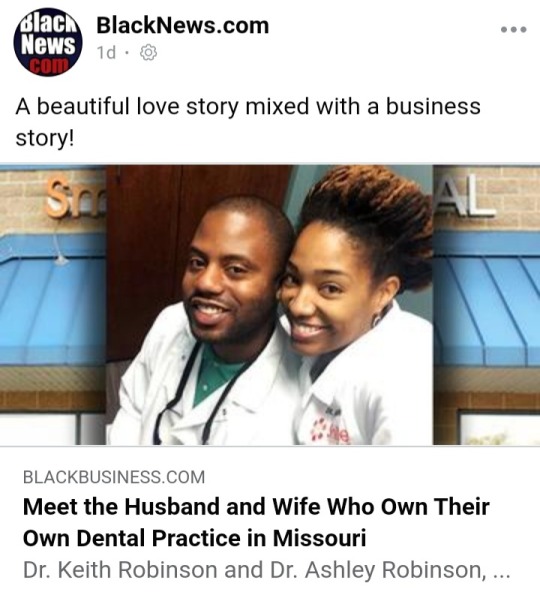

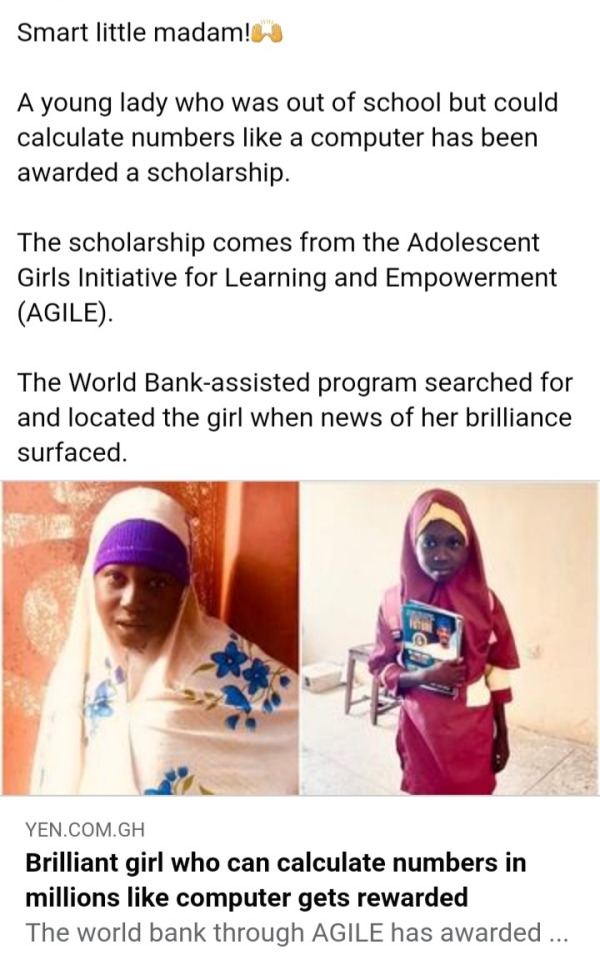
#black economics#black excellence#good news#black people#black education#black owned businesses#black owned#black business#black entrepreneurs#support black owned#black owned business#business owner#entrepreneur#inspirational#blacked#black lives matter#blacklivesmatter
81 notes
·
View notes
Text
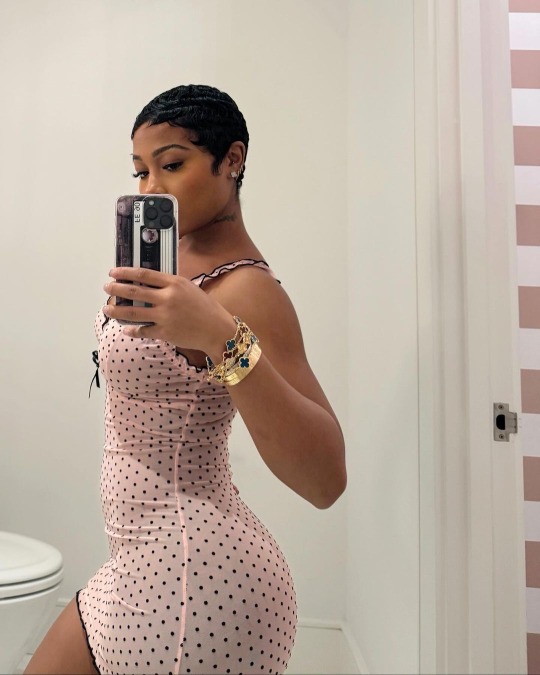
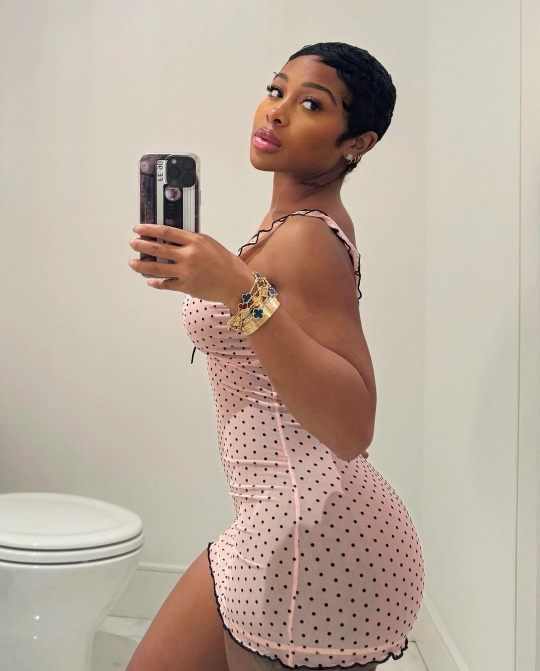
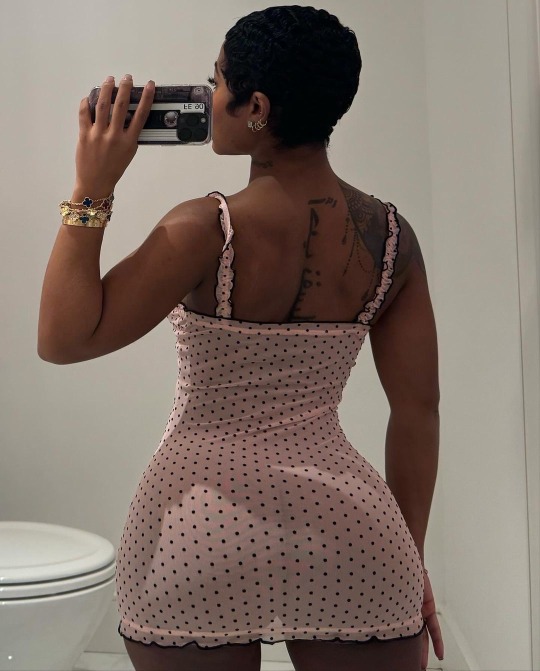
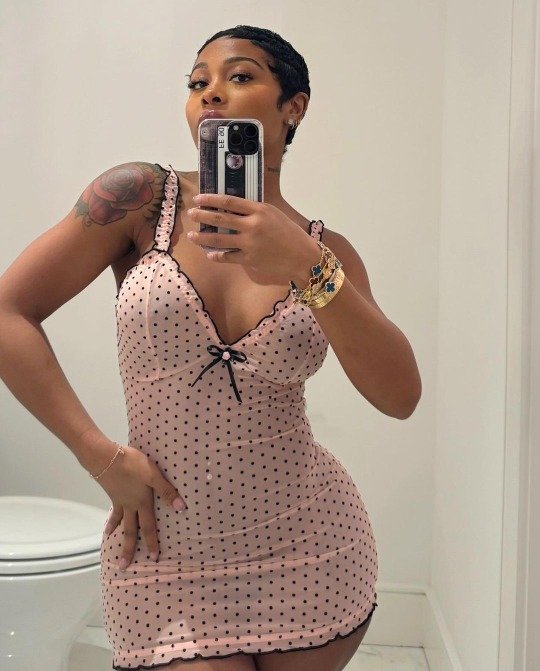

@waydaminbrand | valentine’s day collection
#jaydacheaves#celebrity#fashion#influencer#entrepreneur#black girl aesthetic#jaydawayda#black girl luxury#jayda cheaves#blackgirlbeauty#black girl moodboard#moodboard#india love#grown#nightslip#dess dior
3K notes
·
View notes
Text
Supporting BIPOC businesses at the Mall of America powers diversity
Community Commons.
The Community Common’s at MOA: Stores
It was my birthday, and I was planning on celebrating at home in New Orleans, but I’m still in the Twin Cities, so I decided to celebrate it in a way that reflected my values while being a tourist and splurging a bit. I wanted to support black-owned businesses, so I explored the Mall of America to check out the Community Commons. This…

View On WordPress
#entrepreneurship#review#shopping#BIPOC#Black Entrepreneurs#Community Commons#Mall of America#Small Business
1 note
·
View note
Text
Solo Agers Are Vulnerable to Social isolation
Solo agers are vulnerable to social isolation and mental health problems, particularly if they lack close family or friendship ties.
Also, known as Elder Orphans, Solo Agers represent about 22% of older adults in the United States. Solo agers are vulnerable to social isolation or are at risk of doing so in the future, according to a 2016 study. “This is an often overlooked, poorly understood…

View On WordPress
#aging life and geraitric care manager#Aging Life Care Association#aging life care start up#assessing for quality of life#black american geriatric care managers#black american social workers#Black Entrepreneurs#Black geriatric care managers#Black Nurse Entrepreneurs#Black start-up geriatric care management#Black travel nurses#care management business courses#elder depression#elder orphans#emotional quality of life#expert care manager#expert in care management#friendship and quality of life#geriatric care manager start up#isolation and elders#loneliness#Solo Agers#Solo Agers and friendship#Solo Agers and quality of Life#Solo Agers and social networks#start-up geriatric care management aging life care manager#training care managers
0 notes